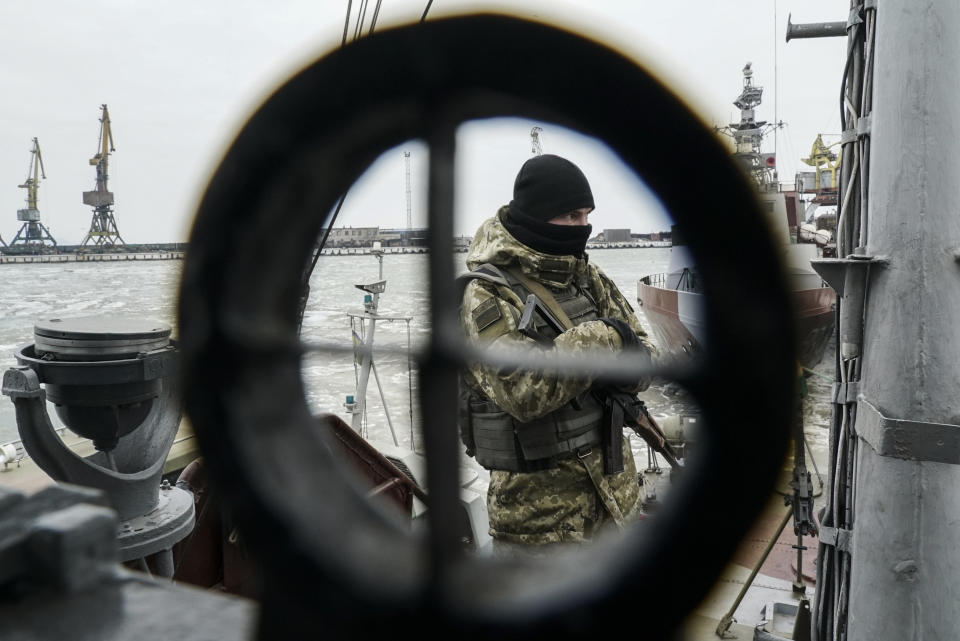Ukraine: Shipping traffic resumes following Russia standoff
KIEV, Ukraine (AP) — Shipping traffic has resumed to and from Ukraine's ports on the Sea of Azov following a standoff with Russia, a Ukrainian minister said Tuesday.
Commercial ships were moving through the Kerch Strait linking the Sea of Azov with the Black Sea, Infrastructure Minister Volodymyr Omelyan said.
Omelyan, who accused Russia last week of blocking Ukrainian cargo trying to pass through the strait, said the ports of Berdyansk and Mariupol were "partially unblocked" thanks to a "stern international response."
Later Tuesday, the Ukrainian Agriculture Ministry said grain was again being loaded onto ships in the two ports. The ministry also said that "the passage of ships with agricultural products through ports on the Sea of Azov have been unblocked."
Russia, however, insisted that it never blocked vessels from sailing through the Kerch Strait and that any possible disruptions were due to bad weather.
The tug-of-war between the neighboring countries over Russia's annexation of Crimea and support for separatist rebels in eastern Ukraine escalated following a Nov. 25 incident in which the Russian coast guard fired upon and seized three Ukrainian naval vessels and 24 seamen on board.
The vessels were on a mission to sail from the Black Sea into the Sea of Azov and operating in line with a 2003 treaty with Russia that allowed Ukrainian ships free passage through the Kerch Strait. But Russia, which annexed Ukraine's Crimean Peninsula in 2014, charged that the Ukrainian boats entered its territorial waters without permission.
The U.S. and its allies have condemned what they described as unjustified use of force by Russia and urged it to release the ships and their crews.
NATO foreign ministers are meeting with Ukrainian Foreign Minister Pavlo Klimkin on Tuesday and Wednesday as Ukraine seeks international backing for its Black Sea standoff with Russia.
Speaking before the meeting, NATO Secretary General Jens Stoltenberg urged Russia to release the Ukrainian sailors and ships and to allow free navigation and unhindered access to Ukrainian ports in the Sea of Azov.
Ukrainian President Petro Poroshenko responded to the standoff by introducing martial law for 30 days, something Ukraine hadn't done even after Crimea's annexation and amid large-scale fighting between Ukrainian forces and Russia-backed separatists in 2014-2015.
As part of martial law, Ukraine has beefed up its forces on the border with Russia, called up reservists for training and barred entry to all Russian males aged between 16 and 60.
Some critics at home, including Poroshenko's main political rival, former prime minister Yulia Tymoshenko, accused him of using the naval incident for political purposes before March's election. But Poroshenko has pledged that martial law wouldn't interfere with the vote.
The Kremlin has called the naval incident a provocation intended to shore up Poroshenko's sagging popularity.
The lower house of Russian parliament, the State Duma, approved a statement Tuesday accusing the Ukrainian president of a "reckless and cynical attempt to change the situation in his favor" and a "desire to cling to power at any cost even at the threat of a full-scale war."








